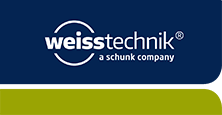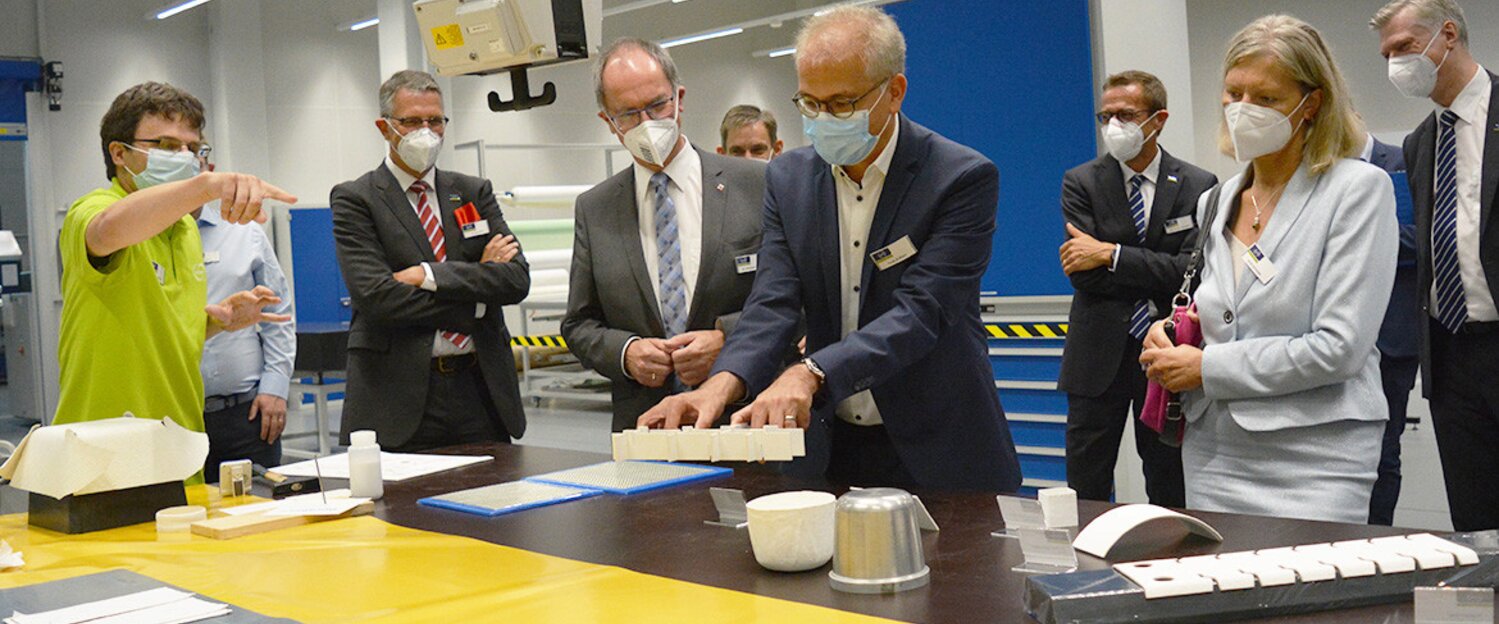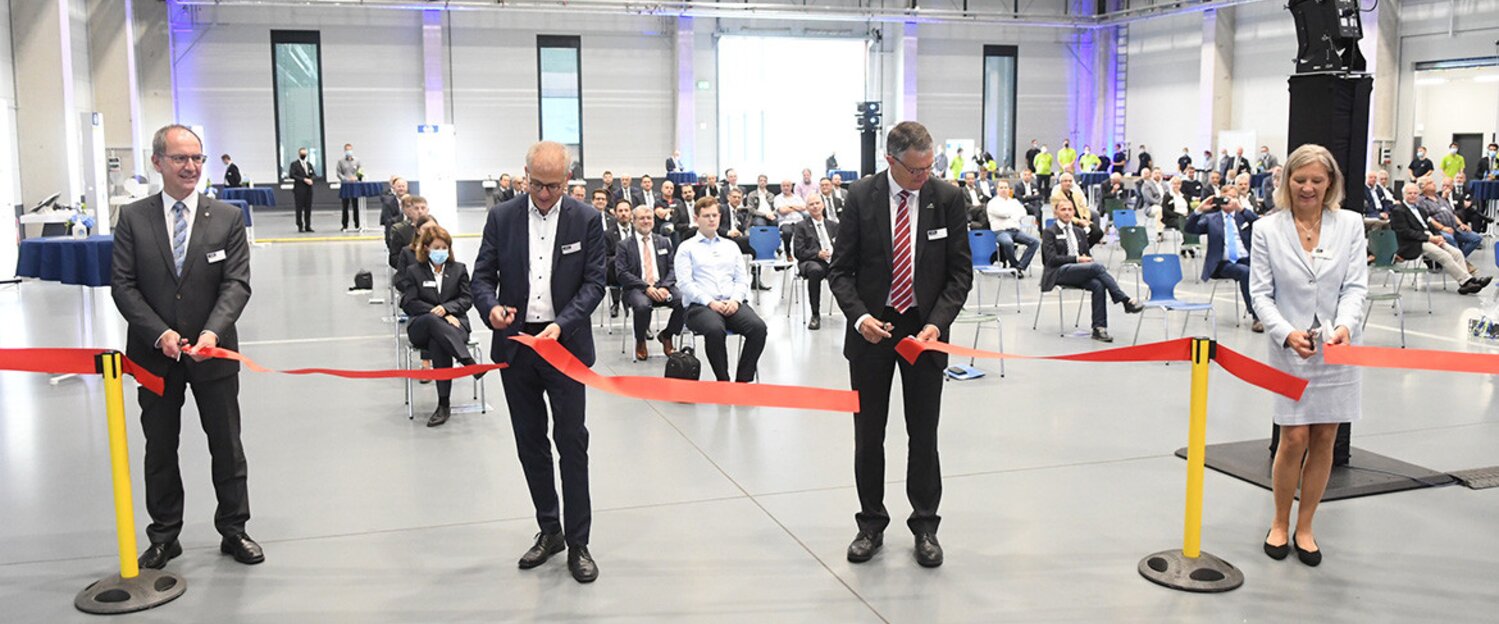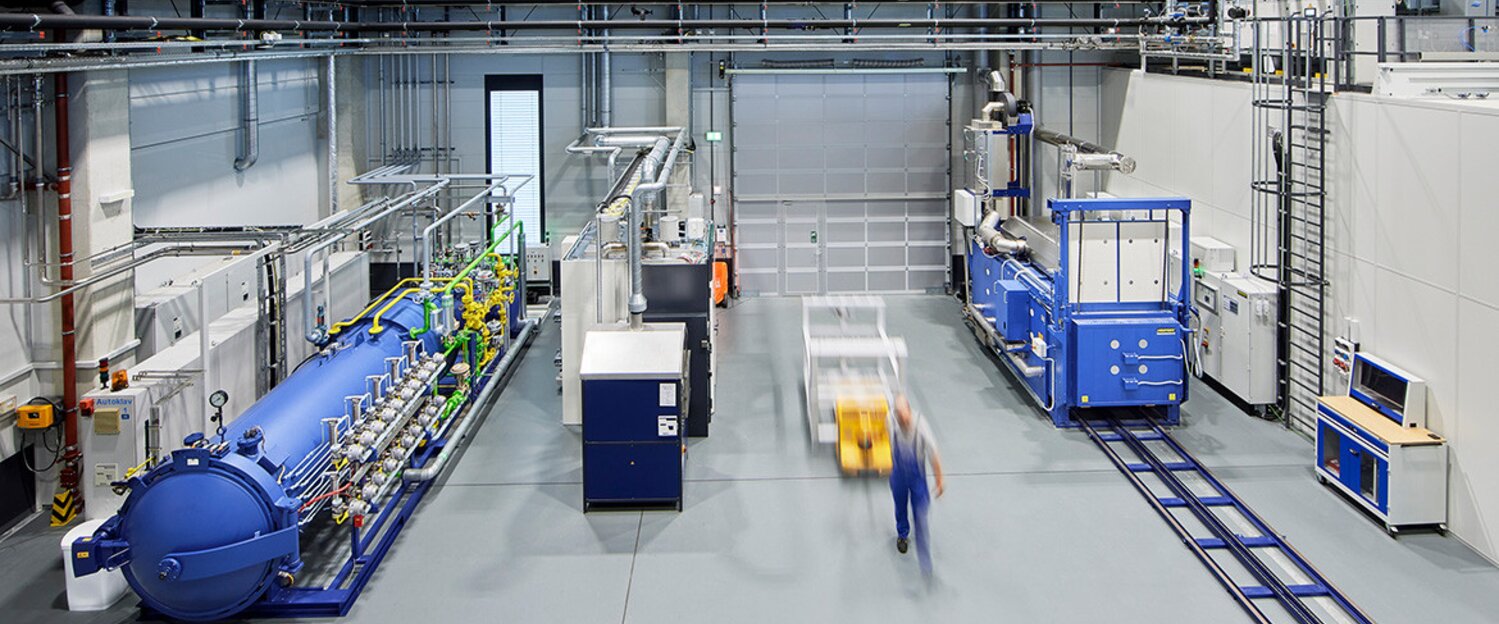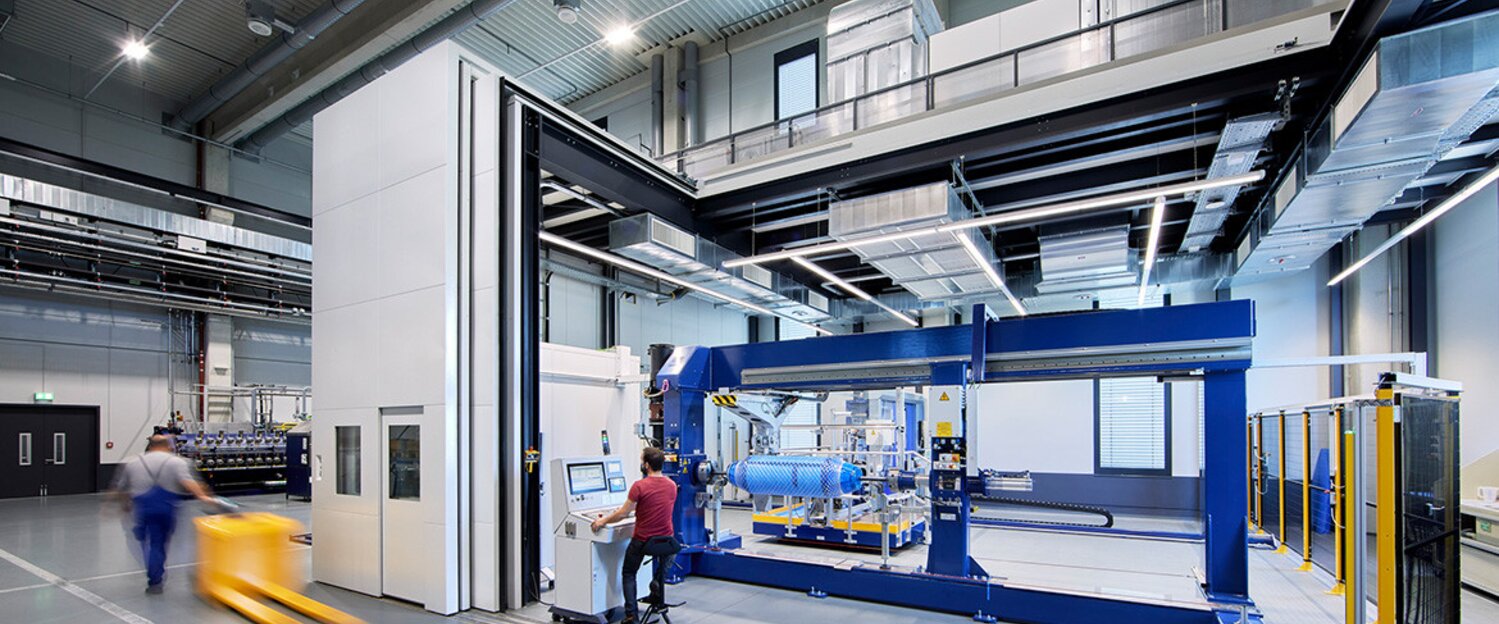Plasma torches, 3D printers for ceramics and two air-conditioning rooms the size of a house: Schunk's new Innovation Center in Heuchelheim is full of state-of-the-art technology. The technology company has invested around 20 million euros to develop high-tech materials and products for the future in Heuchelheim. Today, Schunk opened the Innovation Center with Hesse's Minister of Economics, Tarek Al-Wazir.
"Today is a very special day for Schunk," said Dr. Arno Roth, CEO of the Schunk Group, happily. "As a technology company, innovations are quite crucial for us. And our new Innovation Center, which we are opening today in Heuchelheim, creates the best conditions for developing innovations for the future," said Dr. Roth. Next week, Schunk will open another Innovation Center at the Reiskirchen site of Weiss Technik in the presence of Hesse's Prime Minister Volker Bouffier. The company has invested 30 million euros in both centers. With these important and forward-looking investments, the globally active company is also underscoring the importance of its Hessian locations: in the past five years, Schunk has invested around 220 million euros in Hesse alone and created 340 new jobs. The Schunk Group currently employs 3,700 people at its sites in Heuchelheim, Wettenberg and Reiskirchen, making it one of the largest industrial employers in the region, Dr. Roth added.
"Think tank for new technologies"
One of Schunk's core competencies and one of its most important business areas is the development and manufacture of carbon-based products: graphite, carbon and CFC fibers, for example, are special materials manufactured by Schunk whose properties can be specifically adjusted for the respective application through material composition, impregnation and special process treatment.
"Our new innovation center at the Heuchelheim site will be our think tank, where we intend to develop new high-tech materials and technologies and transfer them to industrial production," said Dr. Ulrich von Hülsen, Member of the Executive Board of the Schunk Group and responsible for the carbon business. "The world is facing enormous challenges in the areas of climate protection, mobility and energy supply. All these megatrends require new materials to solve the existing problems. We are excellently positioned here by developing components for efficient electric motors or industrializing the production of bipolar plates for fuel cells that are suitable for mass production," Dr. von Hülsen continued. "Reducing the carbon footprint is an important driver for our materials innovations."
"Our economy and the industrial processes that drive it are currently undergoing a comprehensive transformation. With their technological innovations, companies like the Schunk Group are making an important contribution to solving this immense challenge," said Hesse's Minister of Economics Tarek Al-Wazir at the opening. "With this think tank, Hessen has the ideal prerequisites for remaining a pioneering innovation leader and shaping a modern, sustainable future with the high-performance materials it has developed," he added.
Development in the perfect climate
From the outside, the new Innovation Center does not look much different from the production halls in Heuchelheim. But this new hall is not just for research and development; pilot production for new products can also take place here. In the Innovation Center, Schunk's developers have all development and manufacturing processes at their disposal in one hall and no longer need to use existing production machines for this purpose. And as a "think tank", the Innovation Center is excellently equipped technically. The entire 3,300-square-meter hall is air-conditioned and the temperature and humidity can be precisely controlled. Thanks to two special climate control units, it is even possible to create three different climates, thus creating the perfect conditions for the development and production of high-performance materials. The sophisticated air-conditioning technology required for this was provided by Weiss Technik.
Robot with plasma torch
The machinery also clearly exceeds the usual industry standard and underlines Schunk's high-tech claim. For example, an atmospheric plasma torch, which is fully automated by a robot, activates surfaces and thus enables, for example, high-quality adhesive bonding of fiber composites with aluminum - such material combinations are used, for example, in lightweight construction in aviation.
Continuous fiber from the printer
In the 3D printing technical center, a whole arsenal of different printers is available, with which almost all 3D printing processes can be represented. As in an internal startup, this young technology is to be made usable for Schunk here. The goal: to print continuous fibers and multi-material ceramics. Because thanks to 3D printing, existing materials can be combined to create completely new fiber composites and ceramics. These have very specific, outstanding properties for special customer applications. For example, they can be used to produce high-temperature materials for industry that help improve processes and save energy.
The right process for every application
What is already being produced in the new Innovation Center are components made of Oxide Fiber Composites, which Schunk markets under the Durafox brand. These white oxide ceramic composites are extremely stable and can withstand even stark temperature changes up to temperatures of 1,100 °C - ideal properties, for example, for use in aluminum smelting or heat treatment. For this material, Schunk now has the broadest process coverage in Germany. This means that, depending on the customer's requirements, a wide variety of shaping processes, such as winding or pressing, can be used - starting with the individual fiber - to produce the exact component with exactly the properties the customer needs for his application.
Bipolar plates for fuel cells
A production line for graphite bipolar plates will move into the Innovation Center before the end of this year. Bipolar plates are at the heart of fuel cells and so-called redox flow batteries and make it possible to generate electricity directly from energy sources such as hydrogen. Through intensive research work, Schunk has succeeded in combining cost-effective production with outstanding material properties. Both are appreciated by leading fuel cell manufacturers worldwide, because only this makes the use of fuel cells on a larger scale possible at all.

